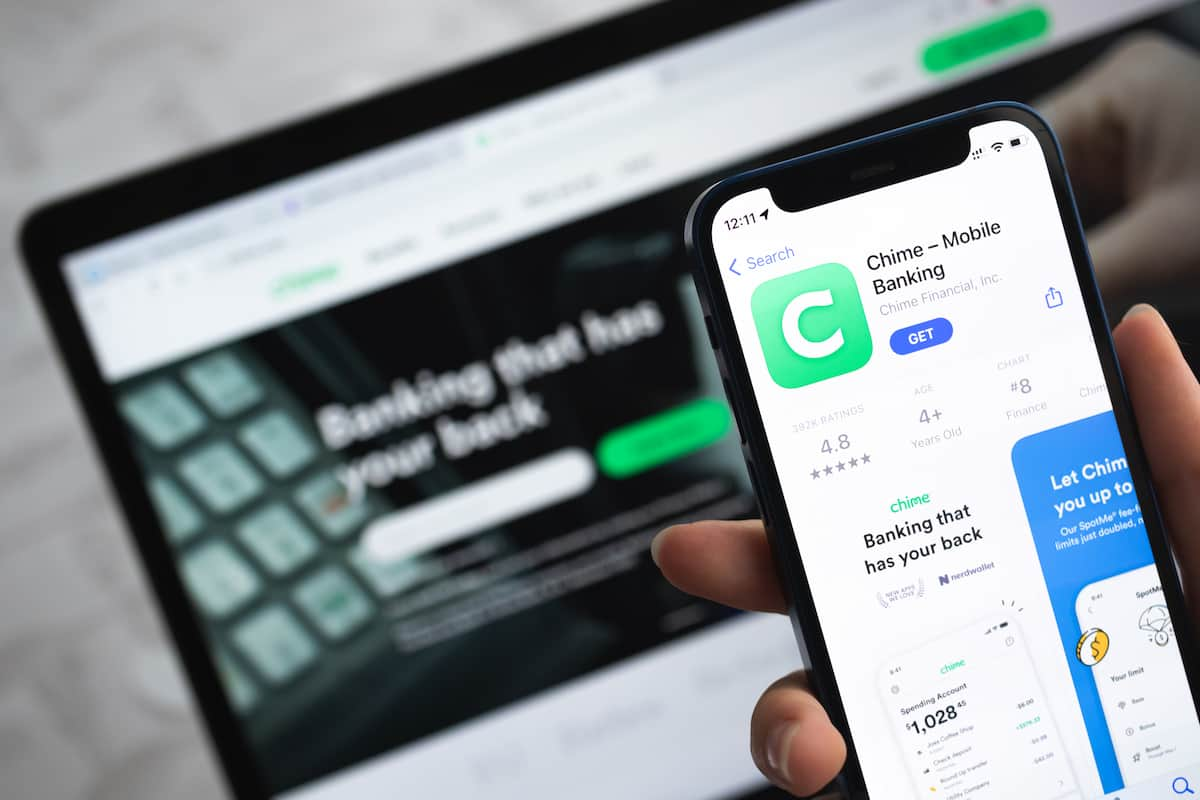Chime is an online banking platform that has become increasingly popular in recent years due to its user-friendly interface and lack of hidden fees. One of the most important aspects of banking with Chime is understanding your routing number, as it’s essential for sending and receiving money.
However, navigating the world of routing numbers can be confusing, especially for those new to the banking world. That’s why I’ll delve into the intricacies of Chime routing numbers in this article and provide you with all the information you need to know.
After all, did you know that using the wrong routing number can lead to a delayed or failed transaction? Read on to discover how to avoid this common mistake and ensure your money is always where it needs to be.

What’s the Chime routing number?
Chime offers two different routing numbers and the one that applies to you will depend on which partner bank your account has been assigned to. The Stride Bank N.A. routing number for Chime clients is 103100195 and the Bancorp Bank routing number for Chime clients is 031101279.
It’s important to note that these routing numbers are for domestic transfers only. If you need to make an international transfer, you will need to use a process.
You may also be interested in: Bank of America Routing Numbers (2023) – By State
How do you do an international wire transfer with Chime?
Chime does not currently offer international wire transfer services, so you cannot do an international wire transfer directly through your Chime account. This also means that there is no Chime routing number for international transfers.
However, you can use third-party services to send and receive international wire transfers. Here are the general steps you can follow when doing this:
- Choose a third-party service: There are many third-party services that offer international wire transfer services, such as Wise (which used to be TransferWise and is the one I use the most). You will need to choose a service that works best for your needs and budget.
- Set up an account: You will need to set up an account with the third-party service and provide them with your personal and banking information.
- Provide the recipient’s information: You will need to provide the third-party service with the recipient’s name, address, and banking information, which may include their bank’s SWIFT code, IBAN number or other details, depending on where they are.
- Initiate the transfer: Once you have provided all the necessary information, you can initiate the wire transfer through the third-party service.

It’s important to note that international wire transfers can be more complex and expensive than domestic transfers, and fees and exchange rates can vary widely depending on the service you choose. Be sure to research your options carefully and compare fees and exchange rates to get the best deal possible.
How to find your Chime routing number?
Finding your Chime routing number is a simple process. Here are a few ways to locate your routing number:
- Check your Chime account information: Your routing number is available in the Chime mobile app or on the Chime website. Log in to your Chime account and navigate to the “Settings” or “Account Information” section to find your routing number.
- Check your Chime checkbook: If you have a Chime checkbook, your routing number will be printed on the bottom left-hand side of your check.
- Contact Chime customer service: If you are unable to locate your routing number through the above methods, you can contact Chime customer service for assistance. They can provide you with the correct routing number for your specific account.
Don’t forget that Chime has two different routing numbers. Make sure you are using the correct routing number for the account you are transferring funds to or from to avoid any delays or issues with your transaction.
You may also be interested in: Wells Fargo Routing Numbers (2023) by State: Ultimate Guide
When do you need a Chime routing number?
You’ll need a Chime routing number whenever you need to transfer money to or from your Chime account. Here are some common scenarios where you may need to use your Chime routing number:
- Direct deposit: If you have set up direct deposit with your employer or another organization, you will need to provide them with your Chime routing number so that they can transfer funds directly into your account.
- Transferring funds: If you need to transfer funds from your Chime account to another bank account or receive a transfer from another bank account into your Chime account, you will need to provide your routing number.
- Bill payments: If you are paying bills online, you may be asked to provide your routing number to set up electronic payments from your Chime account.
- IRS tax refunds: If you are expecting a tax refund from the IRS and have chosen direct deposit as your refund method, you will need to provide your Chime routing number to the IRS.

What two banks does Chime use?
Chime uses two banks to provide its banking services: The Bancorp Bank and Stride Bank, N.A.
The Bancorp Bank is a federally chartered commercial bank that is headquartered in Wilmington, Delaware. Bancorp Bank is the issuing bank for Chime’s debit cards and also provides backend banking services for Chime’s mobile banking app.
Stride Bank, N.A. is a community bank that is headquartered in Enid, Oklahoma. Stride Bank provides Chime with the ability to offer early access to direct deposits and enables Chime to process transactions more quickly for its customers.
It’s important to note that while Chime partners with these two banks to provide banking services, Chime is not a bank itself. Chime is a fintech company that offers banking services through its partnerships with Bancorp Bank and Stride Bank.
Related: JPMorgan Chase Routing Numbers (2023): The Ultimate Guide
Does Chime show up as Bancorp Bank?
In some cases, Chime may show up as Bancorp Bank on your bank statements or in other financial records. This is because Chime partners with Bancorp Bank to provide banking services to its customers. As a result, some transactions may be processed through Bancorp Bank and appear on your statements as such.
For example, if you use a Chime debit card to make a purchase, the transaction may be processed by Bancorp Bank and show up on your statement as “Bancorp Bank” rather than “Chime”. However, if you log in to your Chime account, you should still see the transaction listed as part of your Chime account activity.
It’s important to note that while some transactions may show up as Bancorp Bank, Chime is still responsible for providing customer service and support for its customers. If you have any questions or concerns about a transaction or your Chime account, you should contact Chime customer service for assistance.
Is Chime and Bancorp Bank the same?
Chime and Bancorp Bank are not the same entity, but they do have a partnership. Chime is an online banking platform that provides banking services through The Bancorp Bank, which is the issuing bank for Chime’s debit cards and also provides backend banking services for Chime’s mobile banking app.
That is, Chime is not a bank itself, but rather a fintech company that offers banking services through its partnership with Bancorp Bank.
Chime focuses on providing a user-friendly and fee-free banking experience to its customers, while Bancorp Bank provides the banking infrastructure and regulatory compliance necessary to make this possible.

Why isn’t Chime considered a real bank account?
Chime isn’t considered a “real” bank account because it is not a traditional bank in the sense that it does not have its own banking charter. Chime is a fintech company that offers banking services through its partnerships with The Bancorp Bank and Stride Bank, N.A.
Chime focuses on providing a user-friendly and fee-free banking experience to its customers through its mobile app and website. However, since Chime does not have its own banking charter, it is not regulated in the same way as traditional banks.
For example, Chime is not a member of the Federal Reserve System and does not have its own FDIC insurance coverage.
That being said, deposits made through Chime are FDIC-insured up to $250,000 through its partnerships with The Bancorp Bank and Stride Bank. Additionally, Chime is subject to the same banking regulations and consumer protection laws as its partner banks.
Overall, while Chime may not be considered a “real” bank account in the traditional sense, it still provides many of the same services and protections as traditional banks.
Can you use Chime like a bank account?
Yes, you can use Chime like a bank account. Chime offers many of the same features and services as traditional banks, including:
- Direct deposit: You can have your paycheck, government benefits, or other regular income deposited directly into your Chime account.
- Debit card: Chime provides a Visa debit card that you can use to make purchases, withdraw cash, and pay bills.
- Bill payment: You can use Chime to pay bills online or set up automatic bill payments.
- ATM access: You can withdraw cash from over 38,000 fee-free ATMs nationwide through Chime’s network.
- Mobile banking: Chime’s mobile app allows you to check your account balance, view transaction history, deposit checks, and transfer funds between accounts.
- Savings account: Chime also offers a savings account that pays interest on your balance.





